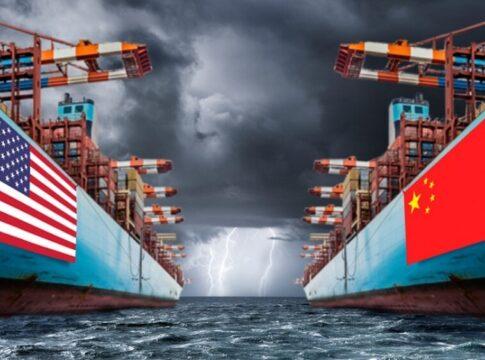Russia and China’s trade relationship continues to flourish, with projections indicating a staggering $240 billion trade turnover by the end of 2024. This ambitious forecast was shared by Dmitry Medvedev, Deputy Chairman of the Russian Security Council, highlighting the resilience and strategic collaboration between the two nations.
Despite facing significant opposition and sanctions from Western countries—most notably from the United States and its allies—Russia and China have fortified their trade relations. Medvedev emphasized that the ongoing economic partnership illustrates the inefficacy of Western sanctions and tariff barriers.
A detailed analysis of trade data reveals a diversified portfolio of exchanged goods. Russia primarily exports energy resources to China, including crude oil and natural gas, which have surged in demand as China seeks to fuel its massive industrial growth. In 2022 alone, energy exports constituted over 70% of Russia’s sales to China, according to the Russian Ministry of Economic Development.
Conversely, China exports a variety of manufactured goods and electronics to Russia, catering to the growing consumer market. The China Chamber of Commerce for Import and Export of Machinery and Electronic Products reported a 15% increase in electronics exports to Russia last year, underscoring the interdependence of the two economies.
“The robust trade figures are a testament to both countries’ strategic pivot towards each other amidst global tensions,” noted Dr. Li Wei, a senior analyst at the Shanghai Institute for International Studies. “This partnership not only bolsters their economies but also presents a united front against Western economic strategies.”
Moreover, the two nations are exploring expanded cooperation in technology and infrastructure development. Exclusive insights from a recent joint economic forum in Shanghai unveiled plans to enhance digital trade and invest in cross-border infrastructure projects, setting a foundation for long-term collaboration.
While the trade trajectory appears promising, challenges remain. Both countries must navigate regulatory hurdles and ensure that their economic ties do not exacerbate geopolitical frictions. Experts caution that while sanctions have not significantly dented trade, unforeseen political developments could impact future agreements.
Furthermore, the focus on expanding trade relations has prompted discussions about potential bilateral agreements to further ease tariffs and enhance market access. Such measures could significantly bolster the economic landscape for both nations and attract investments from other Asian economies.
As Russia and China inch closer to reaching their $240 billion trade target, the implications for global trade dynamics are profound. Their growing alliance may encourage other nations to reassess their economic strategies and foster regional partnerships that challenge existing trade norms.
Dr. Elena Kuznetsova, an economist from the Higher School of Economics in Moscow, posits that “the sustained growth in Sino-Russian trade could redefine Eurasian trade routes and lead to new economic blocs that transcend traditional Western influence.”


